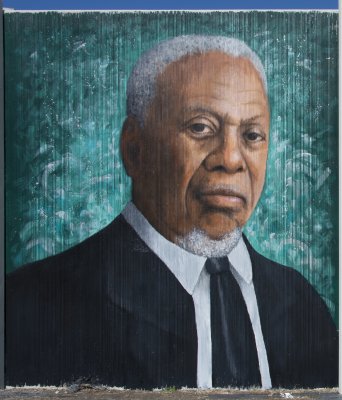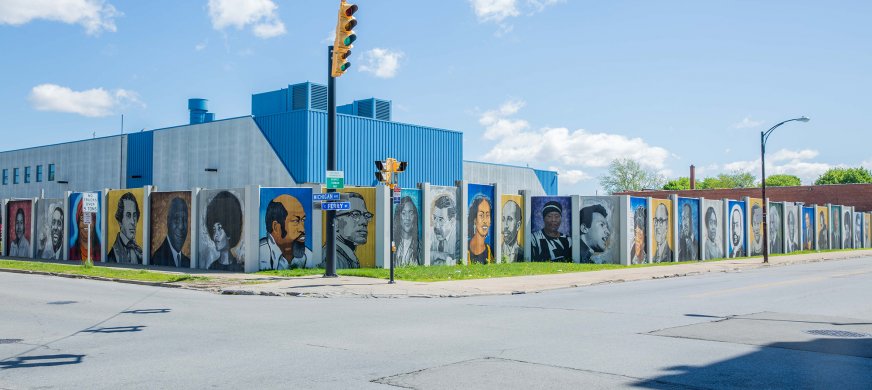Arthur O. Eve

Julia Bottoms’s portrait of Arthur O. Eve for The Freedom Wall, 2017. Photograph by Tom Loonan.
As the New York State Assembly’s longest-serving member and as a private citizen since his retirement, Arthur O. Eve has been committed to improving the lives of his community’s most underserved. He began his public service by looking to solve what on the surface appeared to be a minor issue: a lack of enriching recreational activities for kids in Buffalo city parks. From there, Eve quickly became a prominent force in local Democratic Party activities, challenging the establishment to fight for the rights of minorities. In 1966, he won his first election to begin what would be an historic thirty-six year tenure in the Assembly, where he would serve as Deputy Speaker from 1979 to 2002. In 2000, Eve cosponsored a resolution in the Assembly to declare Harriet Tubman Day on March 10, the anniversary of her death. Eve also became the first African American to win a Democratic mayoral primary in Buffalo, but he ultimately lost the general election to Jimmy Griffin.
In September 1971, Eve was brought in as part of a team of negotiators during the deadly uprising at Attica Correctional Facility. He had first encountered the prison a few years prior, and appalled by the treatment of the facility’s predominantly African American and Latino population, he began developing legislation aimed at correcting injustices in the state’s prison and sentencing policies. Alongside his efforts at criminal justice reform, Eve focused his time in the Assembly principally on issues of education, economic development, and job creation. Among the many projects he helped organize and pass through the legislature is the state’s Higher Education Opportunity Program (HEOP), which provides financial and academic support for academically and economically disadvantaged students, and was later named in Eve’s honor.
